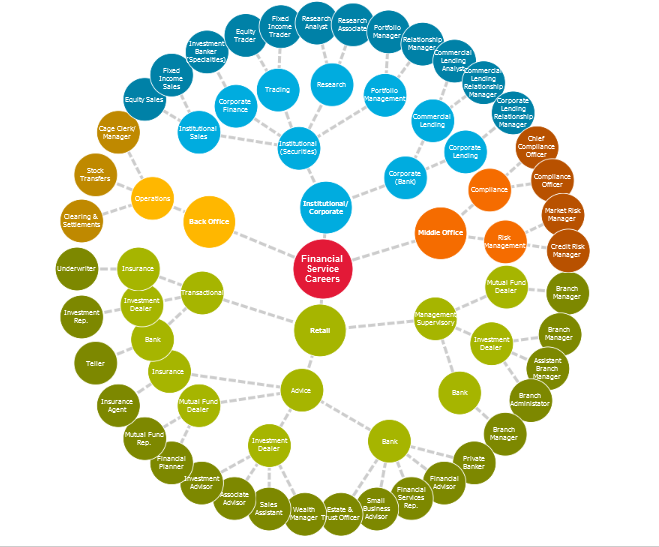
A degree in business administration is required if you wish to work in the consulting business. Also, experience in business consultation is required. This job requires strong problem-solving and analytical skills. Listed below are the duties, jobs, and certifications you can expect to have as a management consultant. Once you have the required skills and experience, you are well on your way to a fulfilling career.
Positions
The roles of consultants in business consulting are diverse. Some work for a consulting firm on a contract basis, while others take permanent positions with a particular company. The title of the head of a consulting company usually indicates their expertise. Other positions include associate business analyst, consulting executive, and administration executive. An organization may have several levels of management. We will discuss the roles within each level below.
The minimum education requirement to be employed in this field is a bachelor's in business administration or another related field. This degree could be in economics, marketing, engineering, or business management depending on the company. A master's degree is required for most business consulting jobs. Applicants should consider the salary range and the company's culture before applying for a position. Once employed, most consultants are paid between $50,000 and $100,000 per year.

Duties
The need to reduce costs and increase efficiency drives the demand for business consulting services. As new technologies are developed to improve productivity and efficiency, businesses will continue to need the services of business consultants. There are many responsibilities and duties that business consultants must fulfill. Although most job openings only require a bachelor’s, others may require a degree in business administration. A business consulting degree can be obtained from a number of disciplines including economics, management and marketing.
A business consultant, a specialist in a specific field, is a person who helps companies solve their problems. They may be hired to work for a particular company or join a team to supplement their expertise. The duties of a business consultant vary according to their area of expertise, but may include attending meetings, performing assessments, and gathering data and information for strategic plans. Some consultants also work on a contract basis. While a business consultant might be a specialist in one industry or particular area of expertise there are many consultants that can help companies succeed.
Certificates
You can still learn from the work done by others but professional certifications are becoming increasingly popular. They can impress clients and give your company an edge over other companies. Many consulting certifications are offered online, which means you can finish them at your own pace. Here are some reasons why your business consulting certification is worth considering. Although they may seem more costly than you might imagine, these courses can be very beneficial in the long-term.
A business consulting certification can help you build your client base and open up new possibilities. There are many programs available in your country so you don't have to move. If you're interested in becoming an executive manager, the certification program you choose should be considered. This program will give you experience in hiring and human resource management. You can choose from the CMC certification, which requires three years of experience as a management consultant.

Career ladder
Understanding the career progression within a business consulting firm is helpful when you are considering a career. As consultants advance through the ranks, the time spent on client engagements decreases. Analysts spend 80% of their time on client projects, while Junior Consultants spend 20% on professional development. As they move up the career ladder, consultants shift their focus from client projects to project management. Senior consultants are responsible for internal management and coaching junior consultants.
A business consultant can work in many different roles, including project management, marketing and sales. Entry-level consultants deliver analysis and recommendations, while mid-level managers oversee the project delivery. Principles and Partners focus on selling clients and building relationships. Although job titles in consulting can seem confusing, they often refer to the same job functions. Here are the various roles. You might find it useful and helpful to create a mental map of your career, including the roles and responsibilities.
FAQ
How do I start an LLC consultancy business?
First, you must decide what your goals are as a service provider. Then, make sure that you are qualified for these services. It might also help to find someone who already does what you want to offer and see how they operate.
Once you have a clear idea of what you are offering, you can start to identify your target market. You may have to create more if there aren’t enough.
Next, you will need to decide if you want to start your own business or hire others.
It is possible to also start your own consulting firm by obtaining a license from the State. But this will require a lot more paperwork and legal costs.
How do you choose a consultant to help me?
There are three key factors to be aware of:
-
Experience - How skilled is the consultant? Is she a beginner? Intermediate? Advanced? Expert? Is her resume a proof of her skills and knowledge?
-
Education – What did the person learn in school? Did he/she go on to further education after graduation? Are we able to see evidence of his/her learning through the way he/she writes
-
Personality - Do we like this person? Would we hire him/her to be our employee?
-
These questions can help you determine whether the consultant is right for your needs. If there are no clear answers, then it might be worth an initial interview to learn more about the candidate.
Can I get a degree as a consultant?
The best way to become an expert on any subject is by studying the subject thoroughly and then practicing what you have learned.
If you are interested in becoming a great advisor, then start learning now!
A degree without relevant experience may make it difficult for you to be hired. However, if you can demonstrate that you've studied the same subjects as those who got the jobs, you could still apply.
Employers will always seek out candidates who have real-world experience.
Why would a company pay a consultant?
A consultant provides expert advice on how to improve business performance. They aren't there to sell your products.
A consultant is a person who helps companies make better choices by providing sound analysis, and making recommendations for improvement.
Consulting often works closely with senior management teams in order to help them understand the steps they must take to succeed.
They provide coaching and leadership training for employees to enable them to achieve their peak performance.
They may advise businesses on reducing costs, streamlining processes, and increasing efficiency.
How much do consultants earn?
Some consultants make over $100k per year. However, most consultants only make $25-$50k. An average consultant salary is $39,000 This includes both salaried as well hourly consultants.
Salary depends on experience, location, industry, type of contract (contractor vs. employee), and whether the consultant has his/her own office or works remotely.
What is the average price you should charge for a consulting job?
It all depends upon what you offer. If you are offering services for free, it is not worth charging anything. If you're selling products or services however, prices should be determined based on their value.
If you offer low-quality services then you don’t have anything for sale. Why would anyone pay anything for you?
You may be able to ask for a higher price if you offer high-quality services. This is because people know the value that you provide. Clients who purchase multiple packages may be eligible for discounts.
Statistics
- "From there, I told them my rates were going up 25%, this is the new hourly rate, and every single one of them said 'done, fine.' (nerdwallet.com)
- My 10 years of experience and 6-step program have helped over 20 clients boost their sales by an average of 33% in 6 months. (consultingsuccess.com)
- Over 50% of consultants get their first consulting client through a referral from their network. (consultingsuccess.com)
- According to IBISWorld, revenues in the consulting industry will exceed $261 billion in 2020. (nerdwallet.com)
- Over 62% of consultants were dissatisfied with their former jobs before starting their consulting business. (consultingsuccess.com)
External Links
How To
How can I find a good consultant for my business?
It is important to understand what you are looking for in a consultant before you can find one. Do you want them help improve your website's efficiency? Do you want them to optimize your site to rank higher in search engines? Maybe you are looking for someone to point out any problems with your current web host. You need to know what kind of services you want, and then you can begin looking at other companies. Many consultants claim that they can offer these services. But only a small percentage of them are able to deliver. How do I choose one? Here are some things that you need to keep in mind when selecting a consultant.
-
Refer to others. Referring to other consultants is the best way of choosing a consultant. You shouldn't hire someone you haven’t met before as they will probably charge you too much. You don't want to work alongside someone whose reputation hasn't been established. If you're lucky enough to get referrals from people you trust, then great! You might also be able to find reviews online even if there are no referrals. Look for testimonials and case studies where clients have used your service.
-
Ask around. Many people don't realize that consulting could be beneficial for them. They think that since they're currently doing fine, they don't need to make changes. However, this is usually untrue. Even if results are good, there is a chance you haven’t been keeping up-to-date with new trends and technologies. Relying on outdated methods will prevent you from maximizing your potential for growth. Ask around to find a qualified consultant.
-
You should verify their qualifications. When you're looking for a consultant, it doesn't matter whether you're building a small blog or launching a multi-million dollar eCommerce store; you want to be sure that whoever you hire has the skills needed to handle your project. Make sure that they're qualified to perform the tasks you need to be done and that they have sufficient expertise in the area.
-
Find out the type of projects they specialize. It is a common misconception that everyone can manage everything. Some areas require specific education or training. For example, if you need someone to build a WordPress theme, you won't want to hire a developer who specializes in Drupal. This is true for programming languages and graphic design. Ask the designer what kind of projects they have worked on in the past.
-
You should know their prices. You don't want a consultant who charges too much. But you also don't want to pay too little either. Consultants come in many sizes and shapes. Some charge hourly rates while others bill per project. This will help you save money in the long-term.
-
Learn what they offer. Are they available for free consultations Do they offer advice on setting up your system? Do they promise that your site will rank higher once you have worked with them? You can cancel your consultation at any time without penalty if you are not satisfied with what you heard.
-
Ask if they offer discounts over multiple months or for years. Many consultants offer discounted pricing over extended periods. You may not need to commit to a full year, but you may also take advantage of whatever deals they offer.